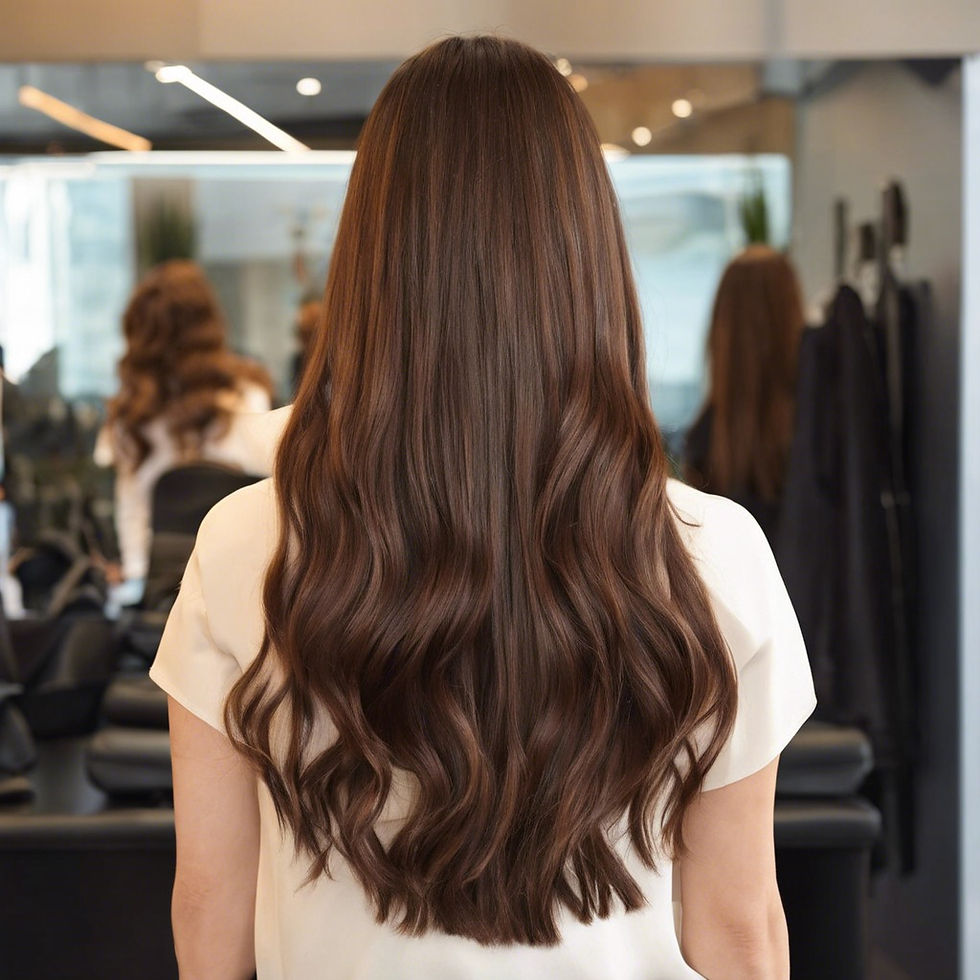11 Reasons You Are Losing Hair. Get to the Root of it, and Heal from the Inside Out!
- Marnie
- Apr 10, 2024
- 3 min read
Updated: Apr 11, 2024
In my practice, I often have clients seeking answers to why their hair is thinning or falling out. Many turn to expensive shampoos, treatments, or supplements for their hair thinning, which often does not help. Instead let’s explore the reasons behind hair loss, which can happen at any stage of life. From hormonal imbalances to nutritional deficiencies and lifestyle factors, there's a myriad of influences impacting hair health. If you are someone struggling with hair loss or someone you know, I hope this helps and please feel free to share.

11 Root Causes of Thinning Hair…GET TO THE ROOT OF IT!
1. Low Thyroid Function:
A full thyroid panel should be done; most doctors will just run a TSH and this is not enough information to rule out a thyroid issue. You should have Free T3 and Free T4 done as well as antibodies, this will give a better picture of the health of your thyroid gland as well as the active form of thyroid hormone.
2. Blood sugar issues and insulin resistance:
This can then lead to hormonal imbalances and things like PCOS.
First dig into looking at blood markers for blood sugar issues >>> fasting glucose, hemoglobin A1C, fasting insulin, LDH, and assess for symptoms related to blood sugar dysregulation.
3. Poor digestion:
Insufficient stomach acid or enzyme production can hinder nutrient absorption crucial for hair health.
4. Gut Imbalances or dysbiosis:
Conditions like H. Pylori, Candida overgrowth, and SIBO can impact nutrient absorption and contribute to hair loss. Low beneficial bacteria can also impact hair growth as one of the essential functions of these beneficial microorganisms is their involvement in synthesizing certain B vitamins, particularly Biotin (B7), Folate (B9), and Cobalamin (B12). These B vitamins are vital for various bodily functions, including energy metabolism, nerve function, and red blood cell production. Additionally, they are essential for maintaining healthy skin, nails, and hair.
5. Low protein diet or poor protein assimilation:
Amino acids are the building blocks of hair follicles. Ensure adequate protein intake for healthy hair growth.
6. Low mineral status:
Iron, Ferritin, and other minerals are vital for optimal hair follicle function.
7. Medications:
PPI’s, acne medications, antibiotics, antidepressants, anti-fungal medications, blood thinners, chemotherapy, cholesterol lowering medications, high blood pressure medications, immunosuppressants, mood stabilizers, oral contraceptives, and steroids may have hair loss as a side effect. Be aware of potential implications.
8. Stress:
Significant stress can trigger hair loss. Practice stress management techniques for overall well-being to support being in a constant state of fight or flight. Deep breathing can help immensely with this.
9. Food sensitivities or allergies:
Allergies or sensitivities to certain foods, such as gluten, can contribute to hair loss.
10. Under eating:
Insufficient calories can cause nutritional deficiencies, whether it is in calories or protein, as well as vitamins and minerals. This is a strain in of itself and will create stress on the body, but will also affect the thyroid, and sex hormones, which will affect hair growth.
11. Hormones:
Fluctuating hormones during perimenopause and menopause can contribute to hair loss. Addressing hormonal imbalances and supporting all the other reasons above can help with reducing hair loss during this time.
Understanding and addressing these underlying factors can be a major step towards addressing hair loss effectively. By addressing root causes such as hormonal imbalances, nutritional deficiencies, and lifestyle factors, individuals can promote healthier hair growth and overall well-being. If you are someone who is struggling with hair loss, please reach out so we can get your body back on track.
#functionalnutrition #hairloss #nutrientsmatter #liveyourbestlife #protein #digestion #minerals #stomachacid #hairhealth

Comments